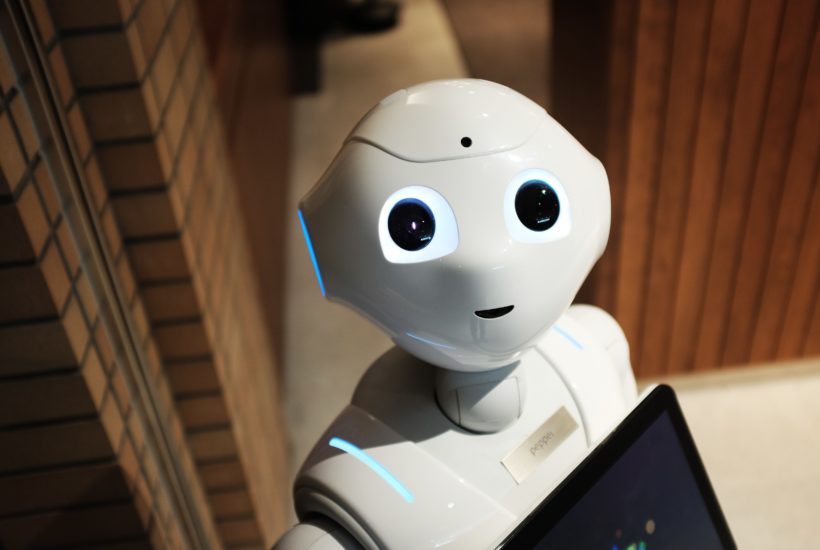Business
Why privacy scandals aren’t hurting smart device sales
The annual electronics trade show, which opened on January 7th, in Las Vegas, illustrates the gap between concerns over controversial uses of technology and consumers appetites for the latest innovations. From January 7th to the 10th, 175,000 visitors strolled through the aisles of the Consumer Electronics Show (CES) and marvelled at the latest connected robots, displays, and messengers.

More and more everyday objects now come with artificial intelligence (AI). Smart devices for the home, cars, health, town planning, and much more can already communicate with humans, and will soon also be able to communicate with each other thanks to 5G.
Far removed from the scandals about personal data being collected at all costs, the Consumer Technology Association (CTA), which organizes the CES, predicted a record breaking year for consumer technologies in the U. S. in 2020.
Sales of televisions, smartphones, and connected homes are expected to grow by 2, 3, and 4% respectively, and sales of wireless headsets could jump by 31%, with nearly 67 million pairs sold and earning $8.2 billion in revenues).
Health, beauty, and well-being will be among the stars of this salon, with objects and applications that are increasingly connected and intimate. From diagnostics to treatments, the digital health device sector is expected to grow by 16% this year to $10 billion in revenue.
“AI and automatic learning permeate the entire health sector,” said Jill Gilbert of “Living in digital times,” who organizes conferences at the CES. At a press preview on Sunday, January 5, however, she acknowledged that “the biggest barrier to the adoption of the latest technologies is not innovation, but trust.”
Discover the world’s most interesting business headlines with the mobile app Born2Invest. The app provides its readers access to the latest news in global business, stock market, finance news, and also trending topics like bitcoin, cryptocurrency, and biotech.
No user “flashback”
Although all these objects (connected speakers and watches, for example) are indeed regularly accused of spying on their owners without their knowledge, associations have regularly sounded the alarm about the exploitation of data by social networks, brands, governments, and hackers.
The U.S. and European regulators have imposed steep fines. Some politicians are calling for the dismantling of dominant platforms such as Google and Facebook. In addition the U. S. is engaged in a trade war against its economic and technological rival, China, which is rubbing off on world trade. “It’s very fashionable to complain about technology,” wrote American author Rob Walker in the New York Times in September.
Rob Walker stated that “Our devices distract us, social networks poison public debate, new trendy objects violate our right to privacy (…) but in reality, we love our gadgets more than ever. There is no backlash against technology,”.
Emotions and prejudices of the machines
To better anticipate our desires, the machine learning will become an increasingly part of new smart devices. Machine learning has already taught devices how to recognize our voices and faces, they will soon detect our emotions. Knowledge of emotional data “has reached a sufficient level” for companies to use it for marketing, market research or political polling, said Accenture.
Robotic companions will thus be able to show more empathy for the elderly, and a vehicle will probably be able to react to signs of driver fatigue. But “reading emotions is a special business,” noted an Accenture report. “Users will worry about potential privacy issues, security breaches, manipulation, and bias.”
It is up to companies to find the right balance. “Between what consumers say and what they do there is often a huge difference,” observed Tuong Nguyen, an analyst at Gartner. “We need to reassure them about privacy and security issues while designing interesting and useful things.”
__
(Featured image by Alex Knight via Unsplash)
DISCLAIMER: This article was written by a third party contributor and does not reflect the opinion of Born2Invest, its management, staff or its associates. Please review our disclaimer for more information.
This article may include forward-looking statements. These forward-looking statements generally are identified by the words “believe,” “project,” “estimate,” “become,” “plan,” “will,” and similar expressions. These forward-looking statements involve known and unknown risks as well as uncertainties, including those discussed in the following cautionary statements and elsewhere in this article and on this site. Although the Company may believe that its expectations are based on reasonable assumptions, the actual results that the Company may achieve may differ materially from any forward-looking statements, which reflect the opinions of the management of the Company only as of the date hereof. Additionally, please make sure to read these important disclosures.
First published in Bourse, a third-party contributor translated and adapted the article from the original. In case of discrepancy, the original will prevail.
Although we made reasonable efforts to provide accurate translations, some parts may be incorrect. Born2Invest assumes no responsibility for errors, omissions or ambiguities in the translations provided on this website. Any person or entity relying on translated content does so at their own risk. Born2Invest is not responsible for losses caused by such reliance on the accuracy or reliability of translated information. If you wish to report an error or inaccuracy in the translation, we encourage you to contact us.

-

 Impact Investing2 weeks ago
Impact Investing2 weeks agoClimate Losses Drive New Risk Training in Agriculture Led by Cineas and Asnacodi Italia
-

 Crowdfunding6 days ago
Crowdfunding6 days agoReal Estate Crowdfunding in Mexico: High Returns, Heavy Regulation, and Tax Inequality
-

 Cannabis3 days ago
Cannabis3 days agoSouth Africa Proposes Liberal Cannabis Regulations with Expungement for Past Convictions
-

 Africa2 weeks ago
Africa2 weeks agoAgadir Allocates Budget Surplus to Urban Development and Municipal Projects























